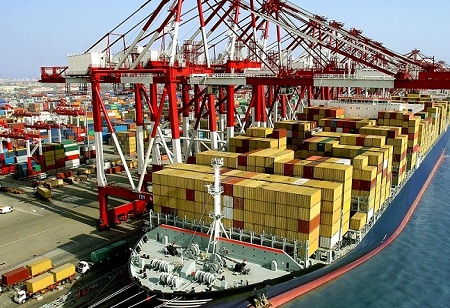Swan Energy Ltd, it acquired erstwhile Anil Ambani group company Reliance Naval & Engineering (RNEL), plans to turn itself into the biggest private player in the manufacture of naval defence and oil and gas vessels. It will also aim to be the largest player in green ship-breaking, ship repairing and a hub for global manufacturing in the Asia Pacific region, senior company executives said.
Led by businessman Nikhil Merchant and his family, Swan Energy partnered Hazel Mercantile Ltd through a special purpose vehicle - Hazel Infra Ltd to acquire RNEL, the largest shipyard in the country. In December, the National Company Law Tribunal approved its Rs 2,100-crore bid for RNEL, which will be renamed Swan Heavy Industries Ltd. Swan Energy, a diversified business group with interests in oil and gas, real estate and textiles, holds a 74% stake in the SPV while Hazel Mercantile owns the rest.
“It is a good asset and has been run efficiently and smoothly. It has a 2 million square feet workshop. It has the largest drydock in India. And there's enough available area to almost double the whole set up and make it the best engineering centre in India,” said Paresh Merchant, executive director, Swan Energy Ltd.
The versatility of the asset, according to him, is in addition to taking up ship repair work or oil and gas vessel work. “One could also look at manufacturing containers, wagons or retrofitting of tanks,” he added. The company is already in talks with the Indian Navy, Oil and Natural Gas Corporation and Indian Coast Guard to revive the existing contracts at the shipyard, Merchant said. As RNEL went into bankruptcy, the promoters
were unable to deliver the above-mentioned contracts. However, it did deliver two oil rigs to ONGC even when it went into bankruptcy. Swan Energy plans to use the facility to bag international orders as the shipyard was also qualified for the maintenance of the Fifth and the Seventh Fleet of the US Navy. Currently, the company is in discussions with the Coast Guard, which is in search of a jetty. Executives said if the talks fructify, the Coast Guard could be using Swan's facility. RNEL, formerly Pipavav Shipyard, has a 720-metre sea front and 685-metre outfit quay, making it one of the largest dry docks in the world.
“Other than L&T’s Kattupalli Shipyard, there are no other private yards in the country. From 2014 to 2020, not many naval defence contracts have been awarded. But now, as India looks to become a major defence manufacturing hub, we expect orders to start coming in,” added Vivek Merchant, project manager, Swan Energy. The shipyard originally had two wet basins – one approximately 680 m long and 65 m wide and the other about 680 m long and 60 m wide.
The first was subsequently converted into a dry dock 662 m long and 65 m wide. A dry dock is an area drained of water to allow the inspection and repair of a ship's hull. As per the terms of the approved resolution plan for RNEL, a five-member monitoring committee is required to be constituted. Two members will be identified and appointed by the Resolution Applicant, two representatives will be identified and appointed by the financial creditors, and the fifth member, an independent insolvency professional, shall be jointly appointed by the remaining members.
The company also plans to increase the headcount. "Currently, we are highly short-staffed at RNEL. Against a strength of 300 people, the company is down to 80. We will begin recruitment of more people shortly," added Paresh Merchant. The expansion of the facility, to be finalised over the next three years, could include adding another dry dock and a coast guard jetty. The actual capital expenditure plan will be decided based on that, the executives said.
The company has sought a five-year period for the repayment of RNEL’s Rs 2,040 crore dues. “But what we are also considering is that if we get better value from our investors, we will probably look at a net present value (NPV) discounting and if agreeable to the lenders, we will give them a bullet payment," said Paresh Merchant.
Apart from the textiles and real estate sector, Swan Energy has a presence in LNG (liquefied natural gas) port terminals and trading in petro products. The company took delivery of India’s first Floating, Storage and Regasification Unit (FSRU) near Jafrabad, Gujarat last year. Over the past few trading sessions, shares of Swan Energy have touched seven-month highs. On Friday, it ended at Rs 311, down 3.6% on the BSE even as the benchmark Sensex ended 0.75% lower.
